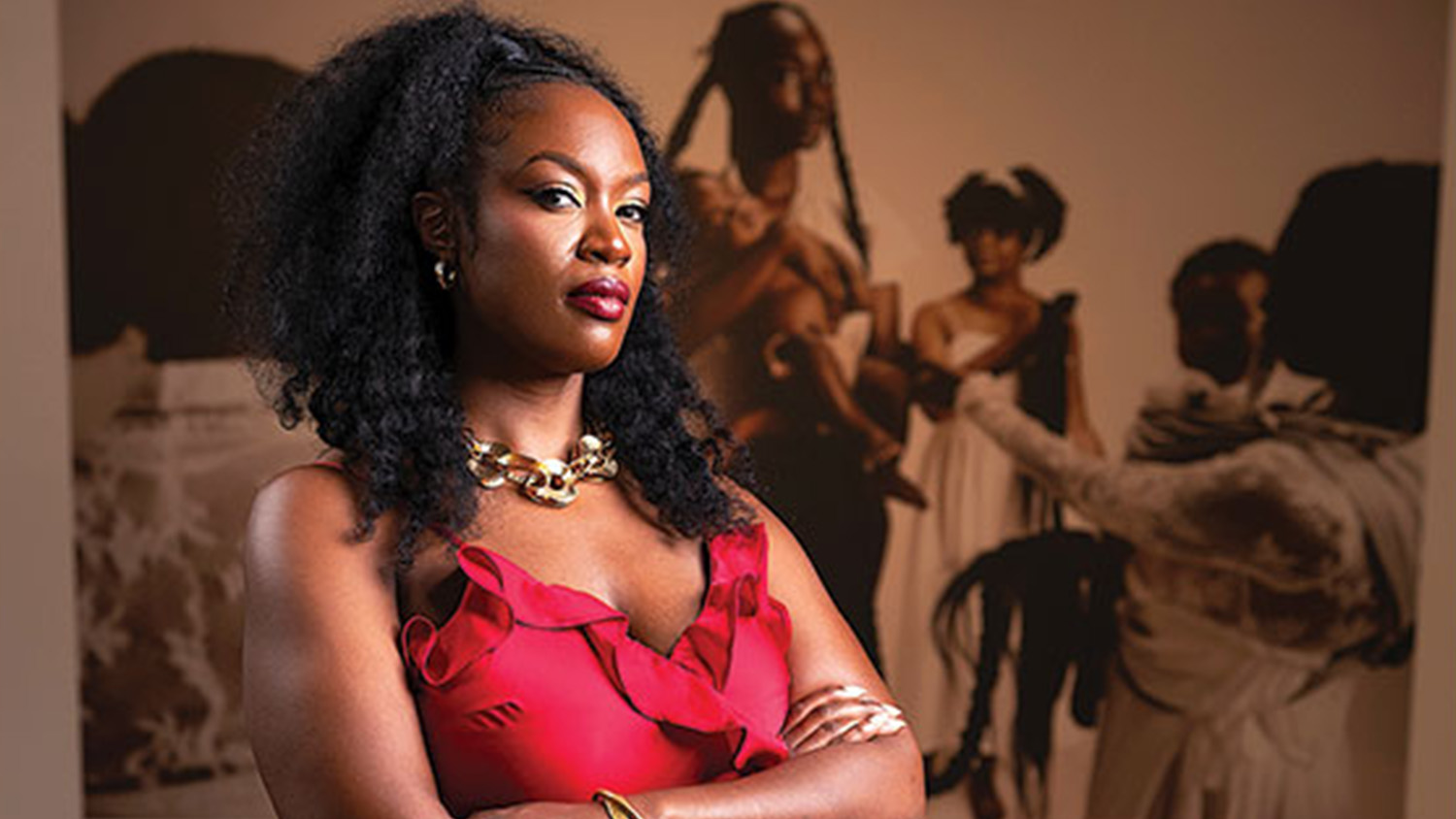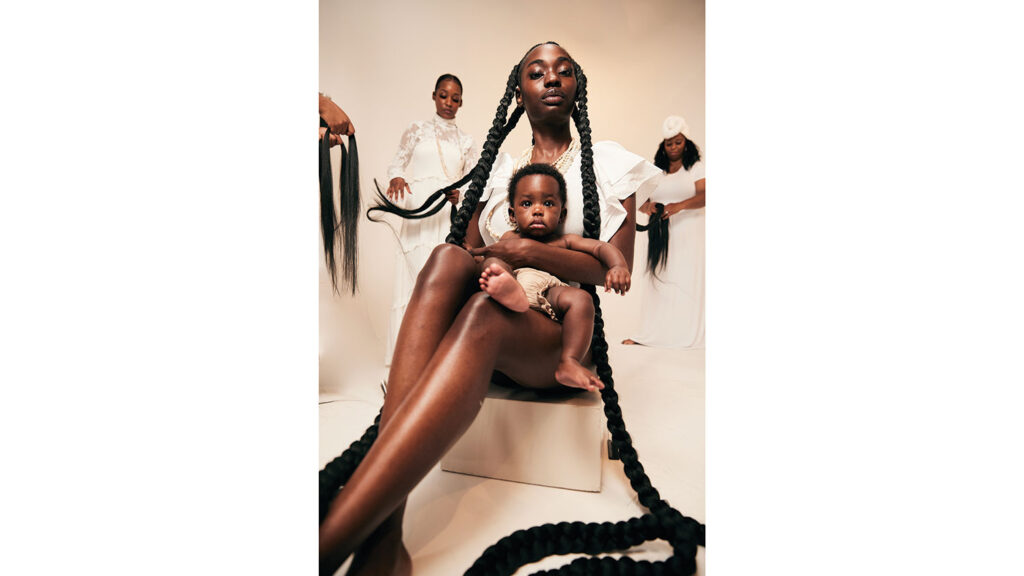A Lens on Representation
Shoe designer turned photographer Samantha Everette ’07 makes it a point to celebrate Blackness.

By Susanna Klingenberg
When Samantha Everette ’07 was studying industrial design, she picked up an issue of NC State magazine on a lark . . . and it changed the course of her life.
On the cover was Guy Marshall ’90, then creative director at The Frye Company, the prestigious American shoe company. “I thought, ‘There’s a Black man, an NC State alum, with my dream job,” says Everette. “He’s got to hire me!’” Determined, she emailed Marshall, asking him to speak to her design class. Impressed by her drive, Marshall made the visit and eventually did hire Everette, kicking off her career in shoe design and leading to a gig managing the design process for such shoe brands as Vince Camuto and Jessica Simpson.
“Shoes are very technical, and design matters down to the millimeter of a curve or angle,” she says. “So I made sure everything was just right, from drawing up to pre-production.”
Everette’s eye for technical detail made photography a natural hobby, and as she split her time between New York City and Asia and traveled the world, she documented what she saw. Eventually, the medium captured her full attention, and she moved back to Durham to pursue photography more seriously.
Black women, we see our lives represented, but it’s often alongside struggle . . . not for who we are.
That passion was on display at Raleigh’s Contemporary Art Museum (CAM) this summer in the form of “Crowning Glory,” an exhibit in which Everette explores the images of an exalted Black woman through the everyday ritual of hair braiding. The stunning photographs elevate a familiar practice into the realm of the sublime.

“There are Renaissance paintings of women just lounging in a bed, exalted because they’re courtesans or queens,” explains Everette. “Black women, we see our lives represented, but it’s often alongside struggle or the fight for civil rights, not for who we are. With these photographs, the message is ‘Hey, beautiful Black women — you exist, you’re beautiful, and you deserve to be in a museum too.’”


